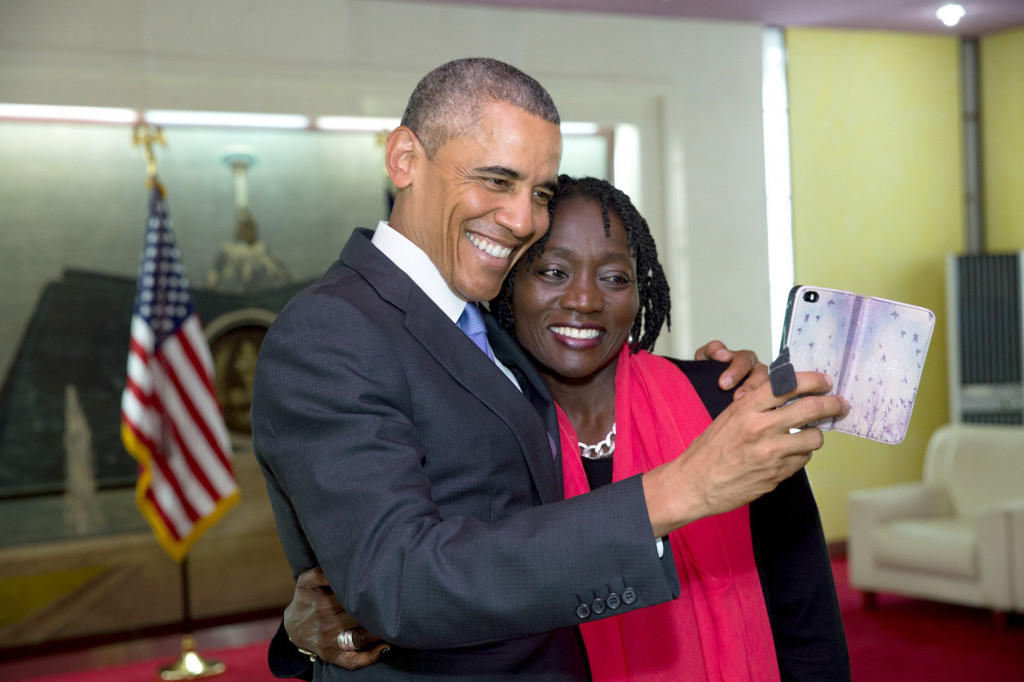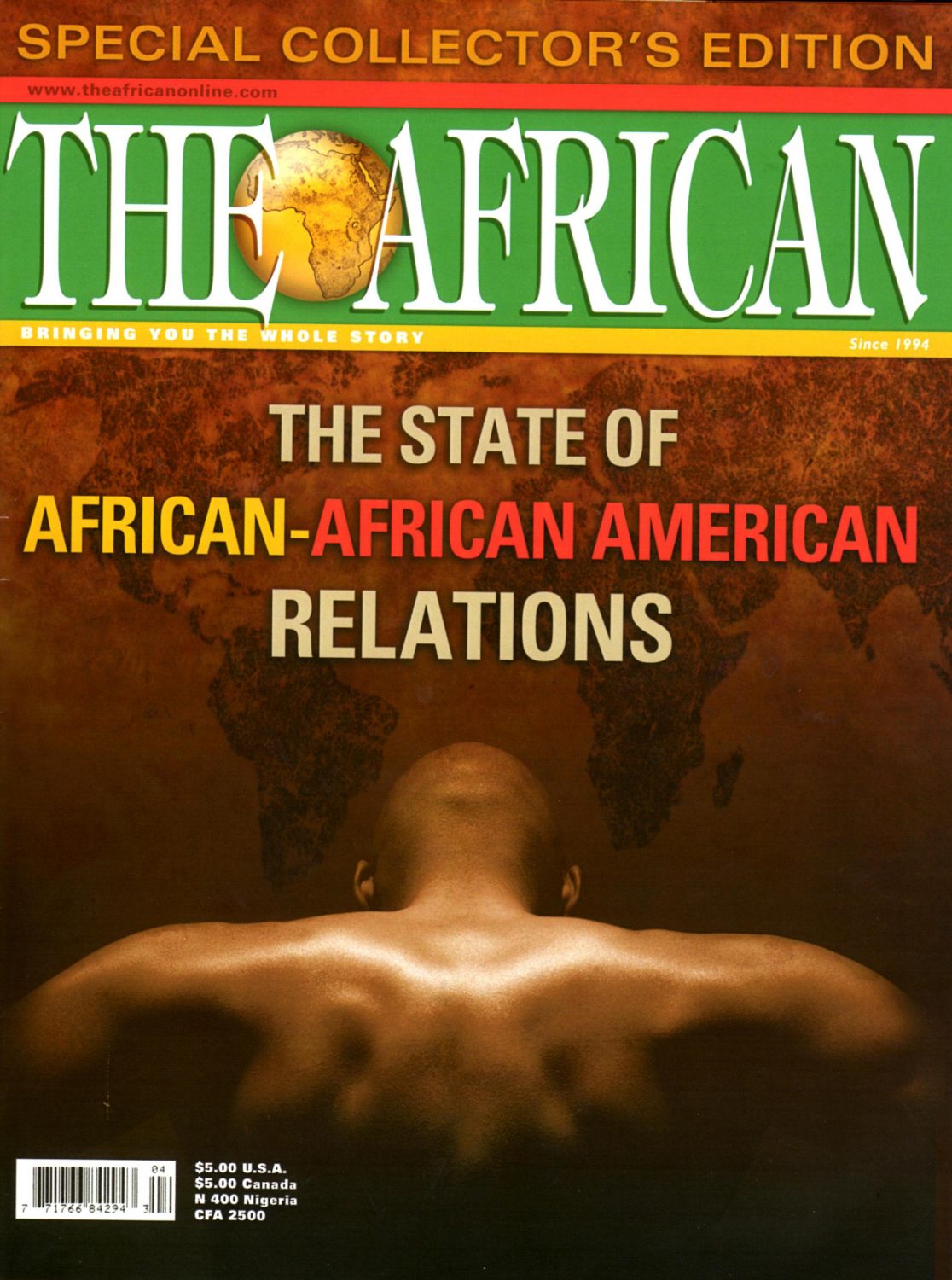The amazing journey of the first “African” president of the US
BY SAM TREASURE
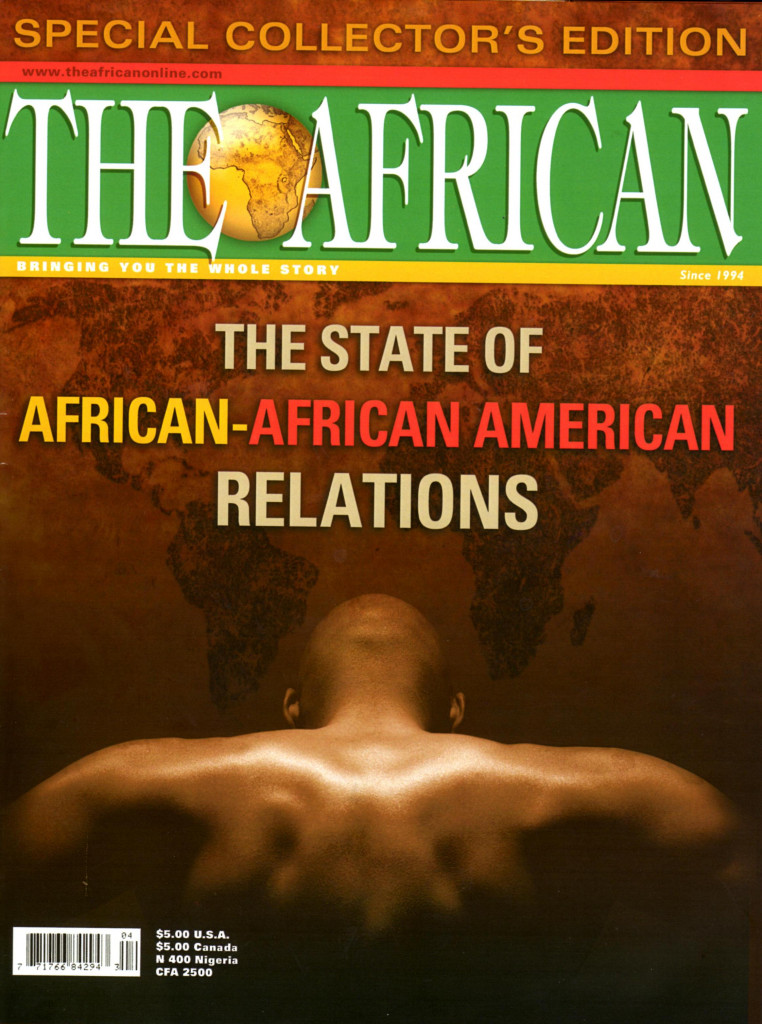 “If there is anyone out there who still doubts that America is a place where all things are possible; who still wonders if the dream of our founders is alive in our time; who still questions the power of our democracy, tonight is your answer,” President-elect Barack Obama said in a voice filled with emotion in his victory speech on 4 November, 2008 at Grant Park in Chicago, Illinois hours after winning the presidency. “I was never the likeliest candidate for this office,” the former senator of Illinois also told the huge crowd, bringing tears to the eyes of many present, including civil rights leader Jesse Jackson and mega media personality Oprah Winfrey, not to mention others across America and throughout the world.
“If there is anyone out there who still doubts that America is a place where all things are possible; who still wonders if the dream of our founders is alive in our time; who still questions the power of our democracy, tonight is your answer,” President-elect Barack Obama said in a voice filled with emotion in his victory speech on 4 November, 2008 at Grant Park in Chicago, Illinois hours after winning the presidency. “I was never the likeliest candidate for this office,” the former senator of Illinois also told the huge crowd, bringing tears to the eyes of many present, including civil rights leader Jesse Jackson and mega media personality Oprah Winfrey, not to mention others across America and throughout the world.
A humbled Obama acknowledged that he owed his victory to Americans from all walks of life. “It’s the answer spoken by young and old, rich and poor, Democrat and Republican, black, white, Latino, Asian, Native American, gay, straight, disabled and not disabled,” he stated. Though the president-elect did not mention it, he was aware of, and most likely appreciated the immense support he also received from the Africa-based wing of his large, diverse family, from Senegal to South Africa via Gabon, Kenya, the Congo and Nigeria, a wing of the family he never turned his back on.
Despite not having had any relationship with his father Barack Obama, Sr., a student from Kenya who left Honolulu, Hawaii just months after his son was born there on August 4, 1961 to relocate to Massachusetts in pursuit of a Ph.D., Barack never really resented his father or Africa. In fact, he has taken several trips to Kenya and other African countries, the first one while in his late twenties. He especially visited Nyangoma-Kogelo, the village in the western hills of Kenya where his father grew up, and wrote in his memoir, “Dreams from my Father,” how he cried beside the graves of his father and grand-father. “For a long time I sat between the two graves and wept,” Obama wrote. “I saw that my life in America—the black life, the white life, the sense of abandonment I felt as a boy, the frustration and hope I’d witnessed in Chicago—all of it was connected with this small plot of earth an ocean away.” Later came his euphoric homecoming of August 2006 along with his wife and two daughters, two years after he was elected to the Illinois senate. Then came his explosive return as president in July 2015.
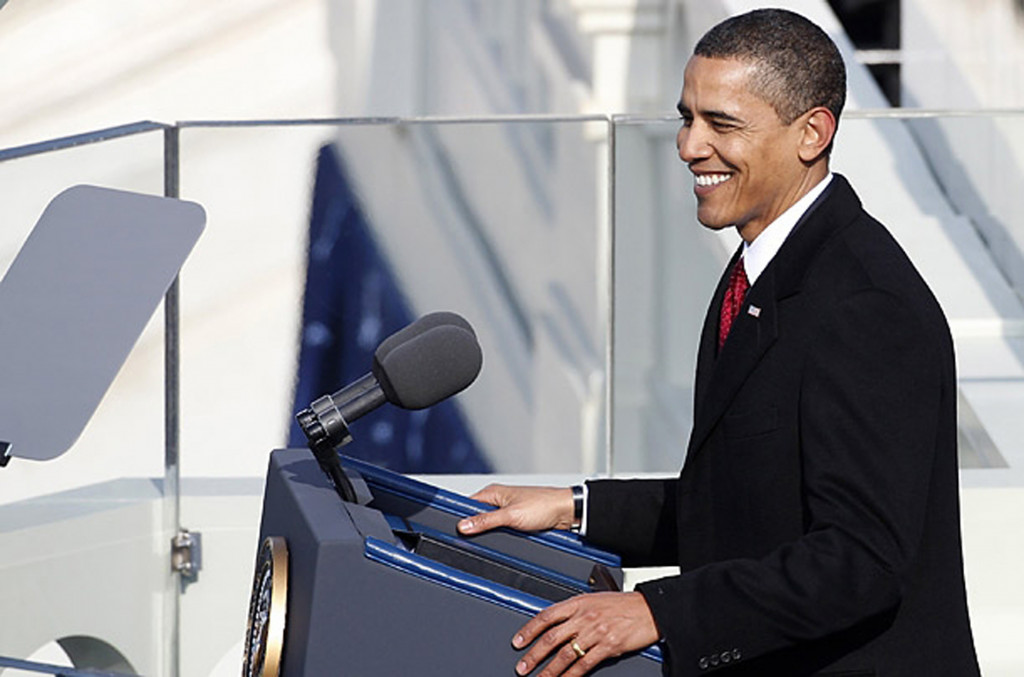
It therefore came as no surprise that short of physically casting a ballot for candidate Barack Obama, Africans across the continent prayed, fasted and did many other things for his election in 2008 as president of the United States. Many believed their prayers would also carry him throughout the uphill journey beyond the election to take care of America’s problems and some of their own, too.
Forty days and forty nights of fasting and prayers from 24 September to 4 November, 2008 is what Pastor Edoh Komi and his church in Togo, West Africa, went through to seek God’s help for Obama’s election. Pastor Komi’s Martin Luther King, Jr.’s Association launched an operation titled “God For Obama. He shall Overcome.” The preacher, who said that Obama’s election was revealed to him by God, added that the reasons for the God For Obama’s operation were two-fold: “First, Obama claims Martin Luther King, Jr.’s heritage. Secondly, he is a source of pride for Blacks in general, and for Blacks in Africa in particular.”
In Mali, a predominantly Muslim country, people not only prayed extensively for Obama’s victory, they also resorted to what’s known there as ‘sacrifice’—offerings made, not to the mosque, but to ordinary people with a specific wish in mind.
Clearly, Obama had the African vote, but a vote by intention only, with no impact on the actual election, except the presumed power of prayers.
Throughout the stretched U.S. election campaign, while some Africans feared that America was still too racist to elect a black president, most, especially among the young generations, had no doubt that the man who is not embarrassed by his father’s goat-herding heritage, the skinny man with the funny name that many could not say and wondered “What’s his name, Alabama, Yo, mama?” would successfully write the last paragraph of his exceptional life, and live up to the flattery comparison to Abraham Lincoln, Martin Luther King, Jr. and Bill Clinton.
Obama’s election triggered wild celebrations across Africa and in the United States. Just six hours after he took the oath of office at 12:04 p.m. on Tuesday, 20 January, Africans representing a large spectrum of the 53 countries on the black continent gathered in the elegant ballroom of a major hotel on the outskirts of Washington, D.C. to celebrate the historic moment.
In an exclusive interview with The African on that occasion, then-Kenya’s minister of foreign affairs, Moses M. Wetang’ula, proudly said: “As a country, as a people and as a continent, we now have a sense of justifiable belonging and partial ownership of the leadership in this country [United States].”
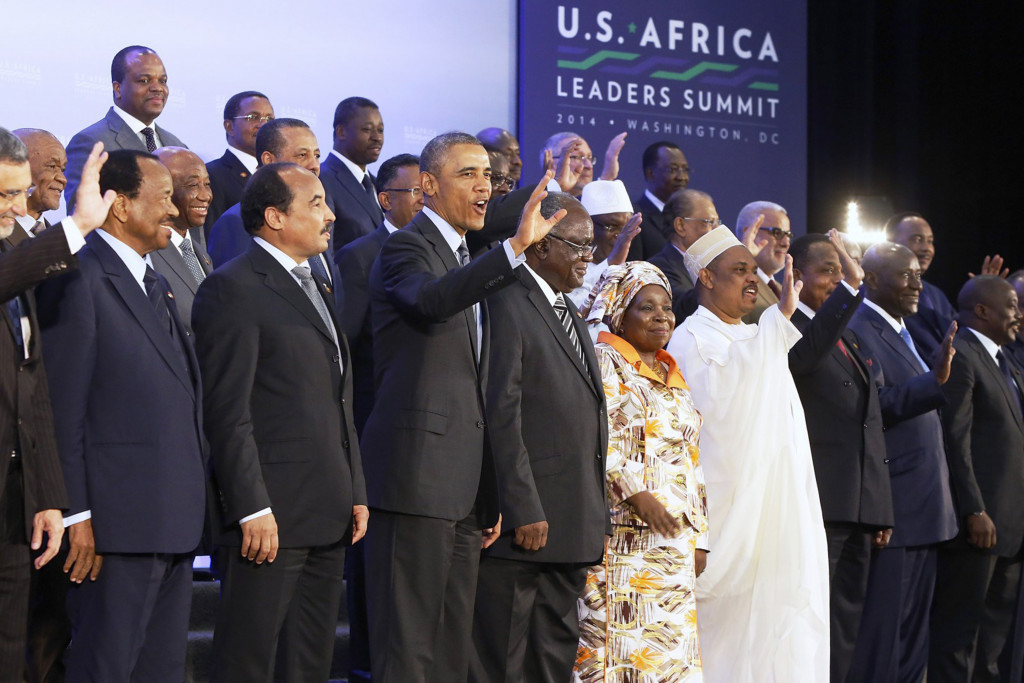
Also, the Kenyan official was confident the president would profusely assist Africa: “Whichever way you take it, he [President Obama] will spare a higher percentage of his time than any of his predecessors to look at Africa,” he said: “Even where he is not able to give in material terms, he can be able to give us technology, he can be able to assist us in many other ways of developing ourselves as Africans.” Wetang’ula, however, was under no illusion Obama would “take care of America’s problems first.”
Clearly, the vast majority of Africans expected Obama to shower their continent with aid, a rather unrealistic expectation—though a justifiable one—in light of the worst economic downturn since the Great Depression that the president inherited on 21 January, 2009. However, after a rather slow start, the 44th president caught up and left a robust African legacy in terms of material aid to Africa, a legacy no less impressive than those of his two predecessors, President Clinton and President George W. Bush, who had set the bar very high (see stories on the website of The African at www.myafricanmagazine.com).
Besides that, President Obama took significant symbolic and rhetorical initiatives that are, arguably, even more valuable than the dollar value of his—or his predecessors’—aid packages for Africa.
Being a member of the extended African family, Obama addressed African issues with a bluntness that U.S. presidents of another race usually do not. “No country is going to create wealth if its leaders exploit the economy to enrich themselves, or if police can be bought off by drug traffickers,” Obama bluntly said in the speech he delivered in the Ghanaian parliament in Accra during his historical trip to this West African country on 11 July, 2009, only six months into his first term—the earliest any U.S. president has traveled to Africa during his tenure. Obama’s famous line in that address: “Africa doesn’t need strongmen; it needs strong institutions,” has since been quoted by countless political analysts, reporters and opinion leaders across the globe. Not the least, the 44th president was the first in U.S. history to address, on 27 July, 2015, the African Union, the 2.0 version (dating back to 2002) of the Organization of African Unity set up in 1963 to bring African nations together.
The sensation that was President Obama strengthened the historical bonds between Black Africa and Black America.
In Black America, during a visit with the president in the oval office in 2012, then-5-year-old Jacob Philadelphia asked if the president’s hair was the same as his, and was assured only after the president let him touch his hair; in February 2016, a video posted on Facebook by an African American woman named Caprina Harris showing that her daughter could not stop crying after learning that Obama was about to leave office went viral; the same year, in May, Virginia McLaurin, a then-106-year-old resident of Washington, D.C., danced with the president and the first lady at the White House to show her joy and amazement at seeing the first black president of the United States.
In Black Africa, streets, beaches, schools, marketplaces and newborn children have been named after Obama.
In Black Africa, just as in Black America, with his stunning election on 4 November, 2008 and his successful two terms that turned the economy around and left a strong legacy—parts of which, try as he could, his ill-intentioned successor seems so far unable to undo—the first “African” president of the United States has shown every black little boy and every black little girl the immense value that the simple phrase “the sky is the limit” now carries; that, henceforth, they can reach the stars, as Obama strongly affirmed in the closing of his inaugural address on 20 January, 2009: “With hope and virtue, let us brave once more the icy currents, and endure what storms may come. Let it be said by our children’s children that when we were tested, we refused to let this journey end, that we did not turn back nor did we falter; and with eyes fixed on the horizon and God’s grace upon us, we carried forth that great gift of freedom and delivered it safely to future generations.”
